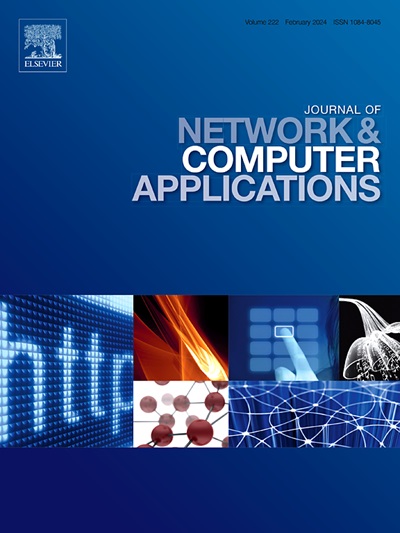区块链:最近的进展、分类和未来的挑战
IF 8
2区 计算机科学
Q1 COMPUTER SCIENCE, HARDWARE & ARCHITECTURE
引用次数: 0
摘要
虚拟世界是一个共享的虚拟3D空间,将沉浸式体验与游戏、社交互动、商业等应用相结合。在虚拟现实、增强现实、人工智能、区块链和其他新兴技术的推动下,它正在迅速成为现实。其中,区块链技术实现了安全分散的所有权以及虚拟资产的无缝互操作性。不可替代的代币确保了可验证的所有权和防止欺诈,而智能合约促进了自动化的点对点交易。b区块链的安全性和透明度促进了信任和创新,为连接和用户驱动的元宇宙生态系统奠定了基础。在本文中,我们探讨了区块链技术作为虚拟世界的关键推动者的作用,为去中心化、通过去中心化自治组织进行治理、可互操作机制、数字资产所有权、可追溯性、审计和身份管理提供解决方案。我们介绍了传统虚拟世界和虚拟世界之间的关键区别,以及为什么区块链比其他去中心化技术更适合虚拟世界。我们全面回顾了元宇宙系统架构的最新进展,重点介绍了最先进的解决方案和经验教训。我们根据关键参数对现有文献进行比较;即贡献、优势、限制和应用。我们提出了主要挑战,包括深度假冒威胁、身份盗窃和品牌侵权风险、心理健康风险、数字安全和赌博风险、虚拟世界法律法规以及隐私和数据安全问题。我们概述了未来关于实现可持续和用户友好的元生态系统的建议。本文章由计算机程序翻译,如有差异,请以英文原文为准。
Blockchain for the metaverse: Recent advances, taxonomy, and future challenges
The metaverse is a shared virtual 3D space that combines immersive experiences with applications in gaming, social interactions, commerce, and more. It is rapidly becoming a reality, driven by advances in virtual reality, augmented reality, artificial intelligence, blockchain, and other emerging technologies. Among these, blockchain technology enables secure and decentralized ownership as well as seamless interoperability of virtual assets. Non-fungible tokens ensure verifiable ownership and fraud prevention, while smart contracts facilitate automated peer-to-peer transactions. Blockchain’s security and transparency promote trust and innovation, laying the foundation for a connected and user-driven metaverse ecosystem. In this paper, we explore the role of blockchain technology as a key enabler for the metaverse, providing solutions for decentralization, governance through decentralized autonomous organizations, interoperable mechanisms, digital asset ownership, traceability, auditing, and identity management. We present the key difference between traditional virtual worlds and the metaverse, and why blockchain is preferred over other decentralized technologies for the metaverse. We comprehensively review recent advances in metaverse system architectures, focusing on state-of-the-art solutions and lessons learned. We compare the existing literature based on key parameters; namely, contributions, advantages, limitations, and applications. We present key challenges, including deepfake threats, identity theft and brand infringement risks, mental health risks, digital safety and gambling risks, virtual world laws and regulations, and privacy and data security concerns. We outline future recommendations for enabling a sustainable and user-friendly metaverse ecosystem.
求助全文
通过发布文献求助,成功后即可免费获取论文全文。
去求助
来源期刊

Journal of Network and Computer Applications
工程技术-计算机:跨学科应用
CiteScore
21.50
自引率
3.40%
发文量
142
审稿时长
37 days
期刊介绍:
The Journal of Network and Computer Applications welcomes research contributions, surveys, and notes in all areas relating to computer networks and applications thereof. Sample topics include new design techniques, interesting or novel applications, components or standards; computer networks with tools such as WWW; emerging standards for internet protocols; Wireless networks; Mobile Computing; emerging computing models such as cloud computing, grid computing; applications of networked systems for remote collaboration and telemedicine, etc. The journal is abstracted and indexed in Scopus, Engineering Index, Web of Science, Science Citation Index Expanded and INSPEC.
 求助内容:
求助内容: 应助结果提醒方式:
应助结果提醒方式:


